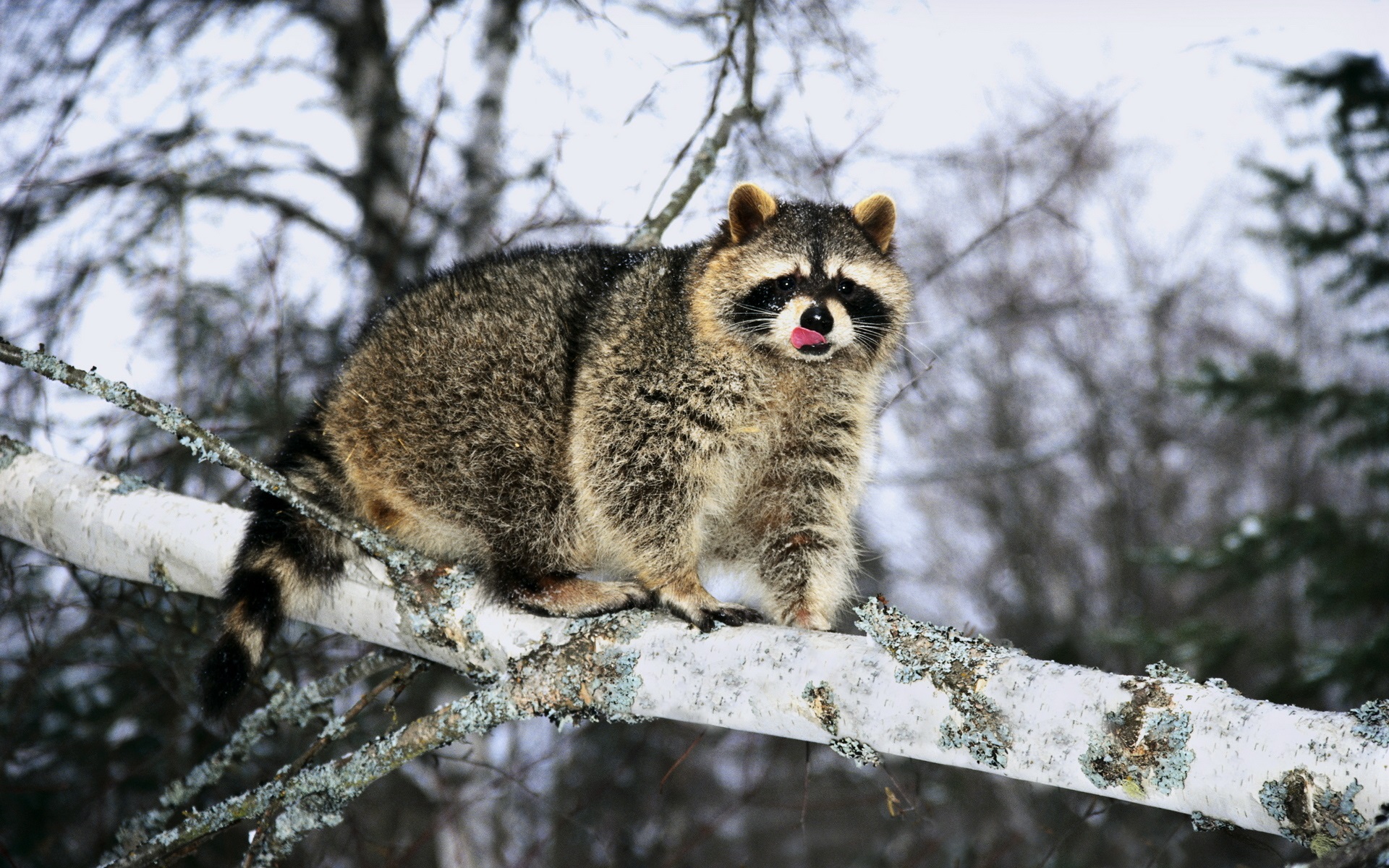Raccoons may look cute and cuddly, but they can be aggressive when they feel threatened and, like other creatures, they often seek out warmth during the winter months and move inside to attics. Keeping raccoons out of your home is important for the safety of your family and the creatures because an altercation with raccoons can be dangerous for everyone involved. You probably know that raccoons are most active during the spring and summer, but you may not know about what they do during the winter. Here’s what you need to know about how raccoons handle cold temperatures during the winter months.
What Do Raccoons Eat?
Raccoons are omnivores, which makes them adaptable to a wide range of environments. The creatures can eat nearly any food item they get their paws on, so in the wild, they may consume birds’ eggs, crawfish, nuts and berries, while in urban environments, they may rely on unsecured garbage and unattended pet food for sustenance. The fact that raccoons eat such a wide variety of foods makes it difficult to create an unsuitable environment for them by eliminating their food source.
Do Raccoons Hibernate?
Technically, raccoons do not hibernate, but they are less active in the winter months. Raccoons store up fat throughout the spring and summer so they can go long periods without eating. During the winter, raccoons may sleep for several weeks at a time, but then they must forage for food before they return to the den to sleep again. You may see a raccoon during the winter months, but it probably won’t be as frequent as you see them during the summer.
Where Do Raccoons Live?
Raccoons have a wide habitat range. They thrive in forest regions, and they are also commonly found in urban environments. Anywhere that has a good source of food and water can be a good environment for a raccoon.Our attics are an ideal place for raccoons to create their den sites, providing shelter from elements and predators.
How Do Raccoons Handle Cold Weather?
Raccoons typically change dens every few days unless they are nursing mothers. However, cold weather may change this habit. Raccoons will stick to a single den if it is warm and provides adequate shelter from the elements. Attics are prime environments for warm dens, but raccoons will also use burrows made by other animals. Although raccoons are typically solitary creatures, they may share a den with several other raccoons during cold weather so they can share body heat while sleeping.
How Can You Prevent a Raccoon Infestation?
Raccoons are determined creatures, and sometimes they make their way into your home despite your best efforts to prevent an infestation. However, taking measures to make your house a less hospitable environment for raccoons is the best way to deter them. Make sure you secure your garbage and never leave pet food outside unattended so you don’t give raccoons an easy food source. You should also periodically examine the exterior of your home so that you can patch up any holes before raccoons try to use them for entry. Remember that the animals are capable of squeezing through holes as small as four inches in diameter, so you must patch even the holes you think are too small for raccoons to fit through.
Make an Appointment Today
Skedaddle Humane Wildlife Control specializes in getting rid of many types of animals from your home and property so you can live in peace. Our expert technicians are highly skilled at raccoon removal, and we promise to remove the masked bandits quickly and efficiently without harming the creatures. Our team will clean all the areas where the raccoons left bacteria and damage. Every removal is completed with a detailed exclusion process that protects your home with long-lasting materials. When you need raccoon removal near me, call wildlife control in Waukesha to schedule an appointment to get rid of the creatures in your house.




